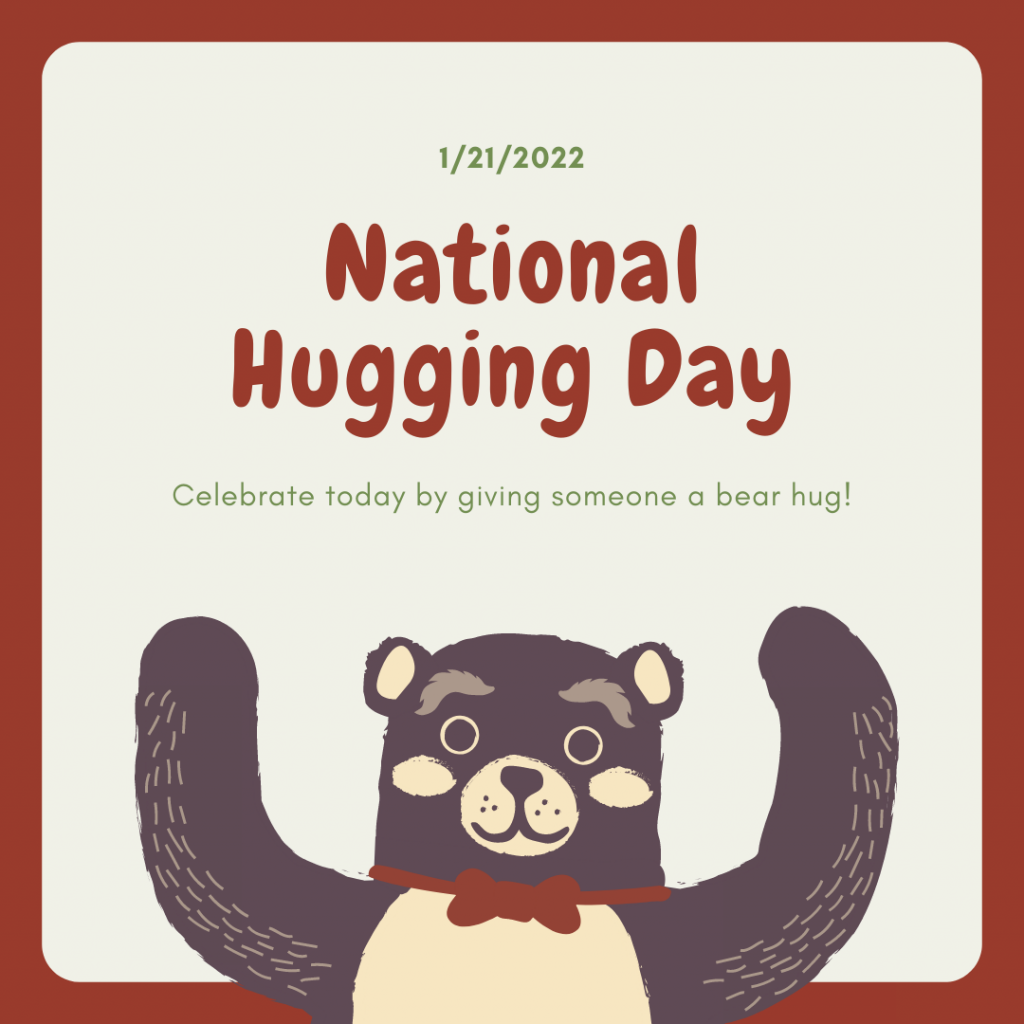


The word "hug" comes from the word "hugga" meaning "to comfort" in the Old Norse language.
What Does Hugging Do?
20 Seconds for the Perfect Hug:
The average hug with a friend or family member is about 3 seconds long.
Studies show that longer hugs, 20 seconds, are recommended because they cause the release of oxytocin, a hormone that relaxes us and lowers anxiety. Oxytocin is often called the "cuddle hormone," and when it is released during a 20 second hug, it lowers blood pressure and reduce the stress hormone norepinephrine.
Hugging Research:
In a 2015 study involving 404 healthy adults, researchers from Carnegie Mellon University examined the effect of perceived social support and the receipt of hugs on the participants' susceptibility to developing the common cold after being exposed to the virus. People who perceived greater social support were less likely to come down with a cold, and researchers calculated that the stress-buffering effects of hugging explained 32% of that beneficial effect. Even among those who got a cold, those who felt greater social support and received more frequent hugs had less severe symptoms.
Fun Fact:
The most hugs given in 24 hours is 9,277, and was achieved by Jeffrey Ondash at Bally's Hotel in Las Vegas, Nevada on February 16-17, 2013.
Celebrate National Hugging Day by spreading love and offering a hug to your friends and family. It's amazing how much difference a simple hug can make!